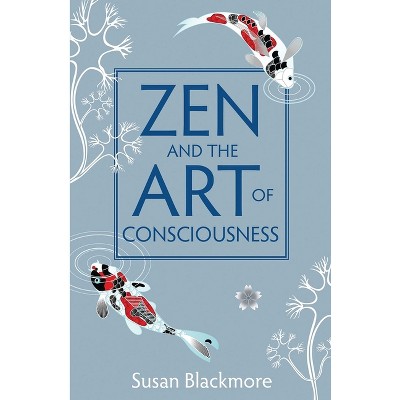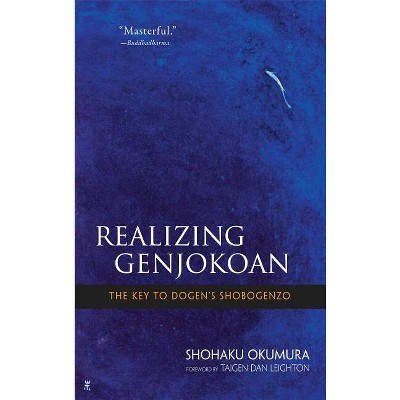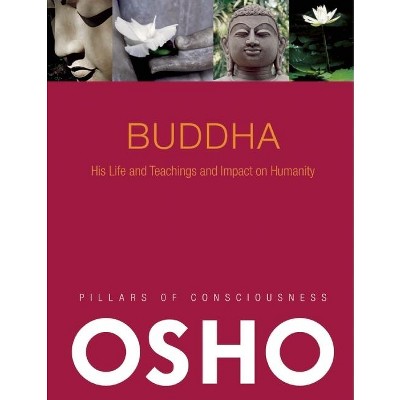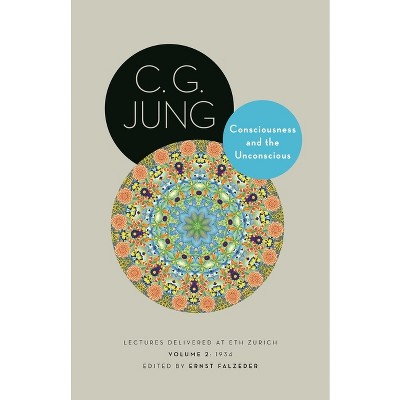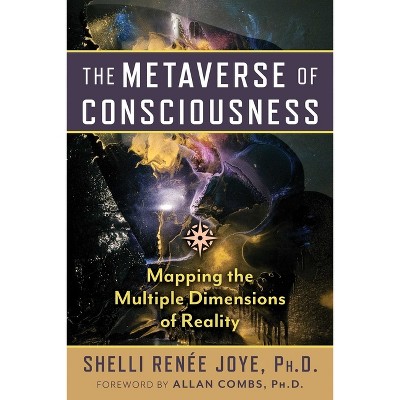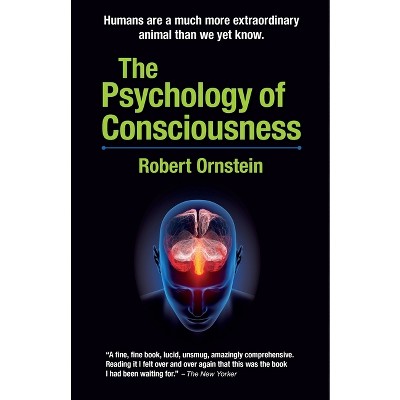Sponsored

Realizing Awakened Consciousness - by Richard Boyle (Paperback)
$34.49
In Stock
Eligible for registries and wish lists
Sponsored
About this item
Highlights
- If, as Buddhism claims, the potential for awakening exists in all human beings, we should be able to map the phenomenon with the same science we apply to other forms of consciousness.
- About the Author: Richard P. Boyle was an associate professor of sociology at the University of California, Los Angeles, until 1972, when he left to pursue his studies in Buddhism in the mountains of northern New Mexico.
- 368 Pages
- Religion + Beliefs, Buddhism
Description
About the Book
Buddhist teachers and scientists collaborate on a scientifically-based approach to understanding enlightenment.Book Synopsis
If, as Buddhism claims, the potential for awakening exists in all human beings, we should be able to map the phenomenon with the same science we apply to other forms of consciousness. A student of cognitive social science and a Zen practitioner for more than forty years, Richard P. Boyle brings his sophisticated perspective to bear on the development of a theoretical model for both ordinary and awakened consciousness.
Boyle conducts probing interviews with eleven prominent Western Buddhist teachers (Shinzen Young, John Tarrant, Ken McLeod, Ajahn Amaro, Martine Batchelor, Shaila Catherine, Gil Fronsdal, Stephen Batchelor, Pat Enkyo O'Hara, Bernie Glassman, and Joseph Goldstein) and one scientist (James Austin) who have experienced awakening. From the paths they traveled to enlightenment and their descriptions of the experience, he derives three fundamental properties of awakened consciousness. He then constructs an overarching model that explains how Buddhist practices help free the mind from attachments to reality and the self and make possible the three properties of awakening. Specifically, these teachers describe how they worked to control attention and quiet the mind, detach from ideas and habits, and open themselves to compassion. Boyle's account incorporates current theories of consciousness, sociological insights, and research in neuroscience to advance the study of awakened consciousness and help an even greater number of people to realize it.Review Quotes
More than any book I have read, it left me optimistic that awakened consciousness is not some myth but an attainable human potential.-- "PsycCritiques"
'Awakening, ' as described and practiced in Buddhism, Boyle shows, is a process that is real and can be appraised in scientific terms.--Anthony Giddens, London School of Economics
If Buddhism is to realize its liberative potential in the modern world, we need to learn a lot more about the nature of awakening. This book is an important step in that direction. Boyle's interviews with well-known Western teachers are insightful (sometimes fascinating) in themselves, and the conclusions that he draws from them are a significant contribution to our understanding of contemplative traditions.--David Loy, author of A New Buddhist Path: Enlightenment, Evolution, and Ethics in the Modern World
In addition to the interviews with well-known American Buddhist teachers, which form the heart of this book and make fascinating reading in themselves, Boyle develops a provocative frame of reference for understanding and discussing philosophically the meaning of some common features he identifies in the interviews, regarding the form of consciousness generally referred as 'awakening.'--David Preston, San Diego State University, author of Constructing Trans-Cultural Reality: The Social Organization of Zen Practice
When meditators have an 'awakening, ' what is it really like? Richard P. Boyle interviewed eleven Western Buddhist teachers to find out, and we get to read their accounts in their own words. Then, drawing on these interviews and on scientific research, Boyle offers an innovative view of how awakening happens and how it can transform each of us.--Paula England, New York University, and president, American Sociological Association
About the Author
Richard P. Boyle was an associate professor of sociology at the University of California, Los Angeles, until 1972, when he left to pursue his studies in Buddhism in the mountains of northern New Mexico. Some years later, he moved to Albuquerque and worked as a senior research scientist at the University of New Mexico's Institute for Social Research. He is recently retired.Dimensions (Overall): 8.9 Inches (H) x 6.0 Inches (W) x .7 Inches (D)
Weight: 1.0 Pounds
Suggested Age: 22 Years and Up
Sub-Genre: Buddhism
Genre: Religion + Beliefs
Number of Pages: 368
Publisher: Columbia University Press
Format: Paperback
Author: Richard Boyle
Language: English
Street Date: June 2, 2015
TCIN: 1002820238
UPC: 9780231170758
Item Number (DPCI): 247-38-8085
Origin: Made in the USA or Imported
If the item details aren’t accurate or complete, we want to know about it.
Shipping details
Estimated ship dimensions: 0.7 inches length x 6 inches width x 8.9 inches height
Estimated ship weight: 1 pounds
We regret that this item cannot be shipped to PO Boxes.
This item cannot be shipped to the following locations: American Samoa (see also separate entry under AS), Guam (see also separate entry under GU), Northern Mariana Islands, Puerto Rico (see also separate entry under PR), United States Minor Outlying Islands, Virgin Islands, U.S., APO/FPO
Return details
This item can be returned to any Target store or Target.com.
This item must be returned within 90 days of the date it was purchased in store, shipped, delivered by a Shipt shopper, or made ready for pickup.
See the return policy for complete information.











